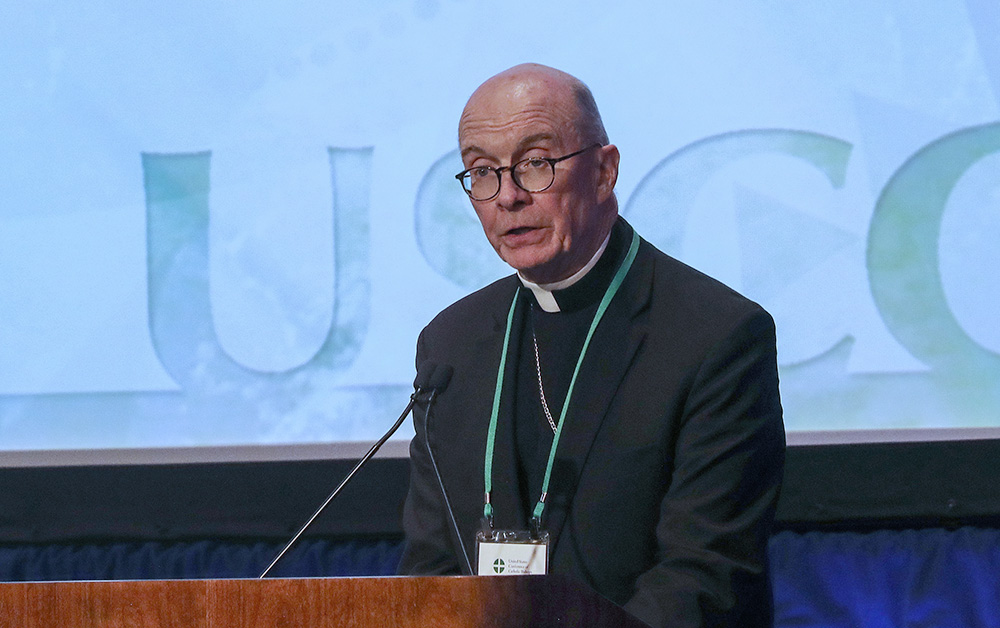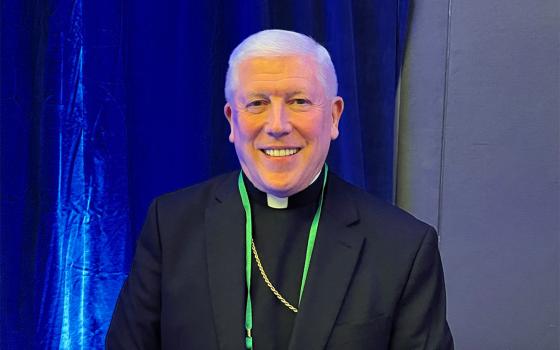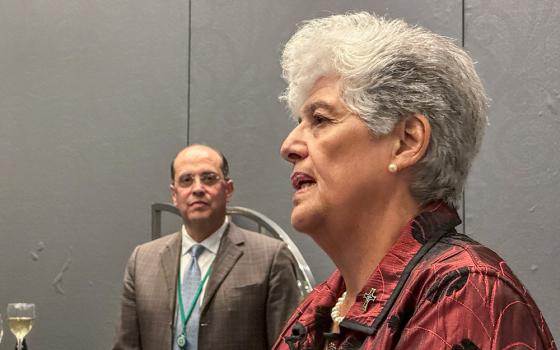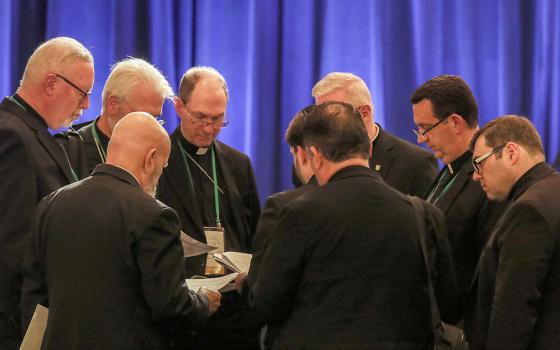
Bishop Timothy Senior of Harrisburg, Pennysylvania, speaks during a Nov. 13 session of the fall general assembly of the U.S. Conference of Catholic Bishops in Baltimore. (OSV News/Bob Roller)
Despite financial challenges, the U.S. bishops' domestic antipoverty program recently approved 93 grants totaling more than $2 million to dozens of community and economic development organizations around the country.
The Catholic Campaign for Human Development also awarded $277,000 in grant funding to support the U.S. Conference of Catholic Bishops' efforts to educate Catholics on the root causes of poverty, as well as for the conference's Ad Hoc Committee Against Racism.
Harrisburg, Pennsylvania, Bishop Timothy Senior, a member of the conference's Subcommittee on the Catholic Campaign for Human Development, announced those grants during a brief presentation Nov. 13 at the U.S. bishops' plenary meeting in Baltimore.
Senior said the subcommittee approved the grants during a meeting on Nov. 9. Because of financial difficulties that include lagging collections, Senior said the $2 million in approved grant funding is a fraction of the amounts that the program has awarded in previous years.
Highlighting financial challenges that he said the Catholic Campaign for Human Development has experienced in recent years, Senior added that the bishops' conference had been "forced to make difficult decisions" regarding grants and restructuring.
In June, the bishops' conference announced layoffs and a restructuring of the Department of Justice, Peace & Human Development, which operates the Catholic Campaign for Human Development. The layoffs were announced weeks after the bishops, during their spring plenary in Louisville, Kentucky, expressed support for the program.
Advertisement
In 2022, the most recent year for which information is publicly available, the campaign operated at a $5.7 million deficit. It spent about half of the $17 million it had in net assets at the beginning of the year to award about $12.7 million to 192 grant recipients, despite only taking in about $9.2 million in total revenue that year.
According to the campaign's other annual financial reports, the program has seen total revenues drop from $18.14 million in 2017 to a little more than $9 million in 2022, even while total expenses fluctuated between $13 million and $22 million over the same period.
Senior said Nov. 13 that the national collections for the Catholic Campaign for Human Development have been hampered by the lingering economic effects from the COVID-19 pandemic, as well as changes in diocesan participation in the collection, among other factors.
Though the pandemic impacted the program's collection, recent annual reports indicated that revenues were beginning to bounce back.
In 2022, the national collection for the Catholic Campaign for Human Development saw a $2 million increase from the previous year, when the program reported a little more than $6 million in collections. The approximately $8.2 million that the 2022 national collection generated is comparable to pre-pandemic collections that brought in between $8 million and $10 million from 2017 to 2019.
In 2023, the bishops initiated a review to "renew the mandate and mission" of their program, which was created to address poverty's root causes by investing in local programs that help empower people and their communities.
On Nov. 13, Senior presented examples of campaign-funded organizations that had assisted local entrepreneurs, migrants, and parents of school-aged children. He also noted the program's upcoming collection is Nov. 17, which coincides with World Day of the Poor.
Editor's Note: This story has been updated to correct the location where Timothy Senior serves as bishop.






